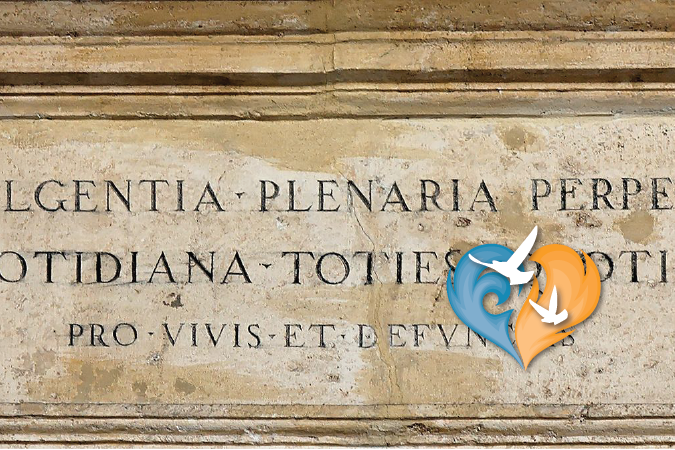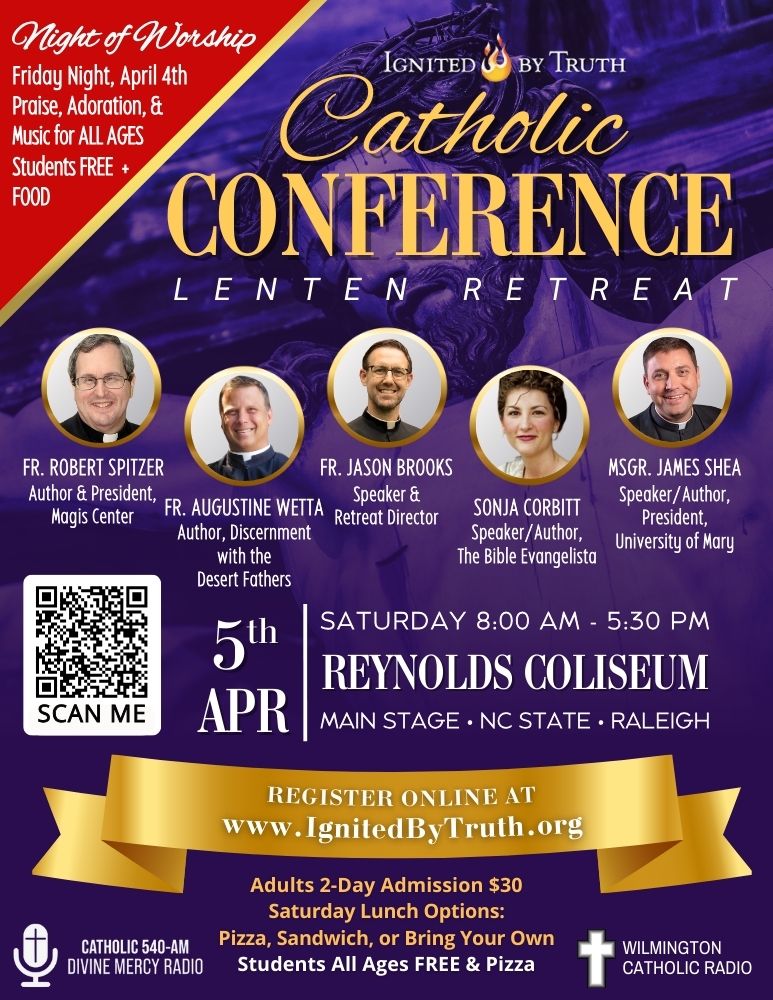
Perusing the Catholic blogosphere leading up to Lent one finds list after list of the things you can do “to get the most of this Lent.” Most of the lists are the same with small variations. Each list hopes to inspire us to adopt a lasting spiritual practice that will draw us nearer to God.
Rather than adding to the list of lists, I am going to suggest one thing and one thing only. It is unlikely that this one thing will be found on any of those lists even though it has been traditionally an important piece of penitential practice. The one thing? Win all the Indulgences you can this Lent and beyond.
To even mention the word Indulgence invokes images of the medieval Church and its battle against their abuses. The Church was able to corral the abuses, but much of the damage was done. The abuse led to complete disuse, so much so that most Catholics no longer know anything about them. They remain an untapped source of sanctification.
In his 1967 Apostolic Constitution, Indulgentiarum doctrina¸ Blessed Paul VI invited the Church to “ponder and meditate well on how the use of indulgences benefits their lives and indeed all Christian society.” Lent seems an excellent time to accept the Blessed Pontiff’s invitation.
Pondering and Meditating Indulgences
“Pondering and meditating” begins with a proper understanding of why this great gift is even useful. “Pondering and meditating” foundationally begins with a discussion of sin. All sin carries with it two effects, guilt and punishment (c.f. Ps 51:3). In order to be set right (justified), both the removal of the guilt (forgiveness) and the punishment (satisfaction) must occur. This punishment can be both eternal and temporal (c.f. 2Cor 2:6).

Of course we must also make sure that we have a proper understanding of what it was that Christ did when He died for us. Christ, the New Adam, acted as the representative for all mankind on the Cross when He made reparation for the sins of the world. A representative sacrifice, as opposed to a substitutionary one, requires that we must participate to gain a share in its fruit. What this means practically speaking is that His sacrifice was both necessary and sufficient to remove our guilt and pay the debt of our eternal punishment. His sacrifice is also necessary to remove the debt of temporal punishment for sin, but it is not sufficient. As St. Paul tells the Colossians (1:24), there is something lacking in the sacrifice of Christ (Col 1:24) and that thing is his (and our) participation. It is through our participation in the Cross that we are given the currency by which we are able to pay to Divine Justice our temporal debts.
When Christ died on the Cross, His death exceeded the debt of sin. This created a treasury of merit that was deposited in the Church. The Church, as the Body of Christ, is now the dispenser of the means of salvation (but not its cause). It is from this treasury that all sources of sanctification flow, including the remission of the temporal punishment for sin. From this, the Church gets her understanding of the doctrine of Indulgences.
What Are Indulgences and How Do They Work?
Most of us know an indulgence has something to do with the temporal punishment for sin, but what is it exactly? Returning to Blessed Paul VI’s Apostolic Constitution, we find that an indulgence is defined as “the remission before God of the temporal punishment due sins already forgiven as far as their guilt is concerned, which the follower of Christ with the proper dispositions and under certain determined conditions acquires through the intervention of the Church which, as minister of the Redemption, authoritatively dispenses and applies the treasury of the satisfaction won by Christ and the saints.” Put simply, an indulgence is the Church’s application of Christ’s merits toward the debt of temporal punishment we owe God for sins already forgiven. St. Thomas with his usual clarity says that the one who gains an indulgence is not excused from paying the debt of punishment but is given the means to pay it.
Understanding the doctrine of Indulgences may help motivate us to make use of them, but many of us do not know how to do so. First, by way of reiterating what Paul VI said, Indulgences are not a get out of hell free card. They only remove the temporal punishment for sin that has already been forgiven. The debt of guilt must first be paid before the debt of punishment can be.
Second, there is the distinction between plenary and partial indulgences. “An indulgence is partial or plenary according as it removes either part or all of the temporal punishment due sin” (Indulgentiarum doctrina n. 2).
To obtain a partial indulgence there are four conditions:
- be baptized
- be in the state of grace
- have the intention to obtain the indulgence
- perform the works or prayers prescribed correctly
For a plenary indulgence all the conditions of a partial indulgence apply (so that if we fail to obtain the plenary we might still obtain the partial) plus
- not be excommunicated
- have no affection for sin, even venial
- receive the Sacrament of Reconciliation and Communion (in the prescribed period of time)
- offer prayers for the pope’s intentions (in the prescribed period of time)
While we must have the intention to gain a particular indulgence, this can be done by occasionally renewing our intention to gain every indulgence attached to the works we are to do throughout the day. One of the ways to do this is by adding this as an intention to the Morning Offering—“ In great sorrow for those sins which You have forgiven, I wish to obtain the indulgences attached to the good works I will do throughout this day.”
Some Specific Indulgences
All Catholics should make themselves familiar with the Handbook of Indulgences to learn about the specific indulged acts. One quickly realizes that the acts listed are objectively good acts that will lead us to holiness even if they did not have indulgences attached to them. In other words, they offer us a spiritual program that should animate our lives, especially during Lent.
There are a few that are worth pointing out. The first set is the “Three General Grants” at the beginning of the Handbook. These represent a class of partial indulgences that are given so that “Christ’s faithful might, as it were, weave their daily life with the Christian spirit and, according to their state, grow in the perfection of charity.” Specifically, a partial indulgence is granted to any of Christ’s faithful, who:
- in the performance of his duties and bearing the trials of life, raises his mind to God in humble confidence and adds, even mentally, some pious invocation
- in a spirit of faith and mercy give of themselves or of their goods to serve their brothers in need
- in a spirit of penance voluntarily deprive themselves of what is licit and pleasing to them
There are also the Indulgences attached to a specific practice during Lent called the “Friday Indulgence.” When the “Look down upon me, good and gentle Jesus” prayer is recited on a Friday in Lent and Passiontide after Communion before an image of Christ crucified, a plenary indulgence is available. On any other day the indulgence is partial. In a retreat leading up to his priestly ordination, St. Maximilian Kolbe plotted out his spiritual strategy that included: trying to…
“…gain as many indulgences as possible, and you will become a saint.”
As we dive deeply into our Lenten practices, may we imitate this great saint and take advantage of the hidden gem within the Church’s storehouse of Indulgences.



